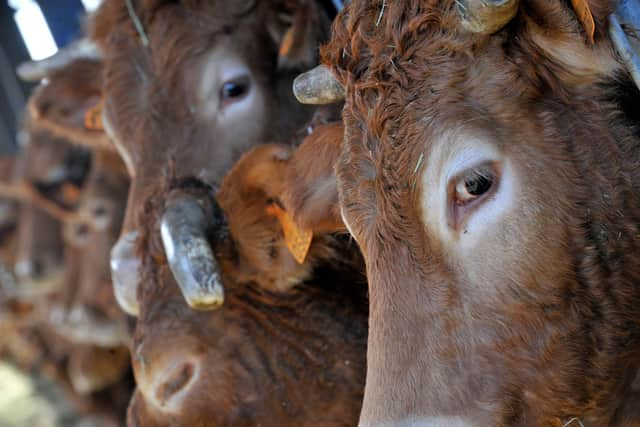Revealed: Scottish research shows seaweed reduces cattle 'wind' by more than 80%
As first reported in The Scotsman’s sister title the Stornoway Gazette, Hebridean Seaweed is working with academic partners to find if local seaweed species will give the same results as have been established in newly published research from the University of California.
The research found that small amounts of seaweed in cattle feed could reduce methane emissions from beef cattle by as much as 82 per cent.


Advertisement
Hide AdAdvertisement
Hide AdProfessor Ermias Kebreab, chair of the Department of Animal Science and director of the university’s World Food Centre, said: “We now have sound evidence that seaweed in cattle diet is effective at reducing greenhouse gases and that the efficacy does not diminish over time”
The findings were not a surprise, he added.
“It was more of a confirmation of what was predicted based on what we already knew,” Prof Kebreab said.
Over five months last summer, researchers added small amounts of seaweed to the diet of 21 beef cattle and tracked their weight gain and methane emissions.
They found that cattle that consumed doses of about 80 grams of seaweed gained as much weight as their herd mates while emitting 82 per cent less methane into the atmosphere.
The type of seaweed used in the trial was Asparagopsis taxiformis – a species of red algae found in tropical waters.
The immediate question for Scottish researchers is whether our own native seaweeds would have the same effect.
Hebridean Seaweed managing director Martin MacLeod told the Gazette: “We are looking at this with academic partners.
"It is very exciting and there are a couple of our own species which are of particular interest. There is no reason to think that it won’t work. The active ingredient is also present in Scottish seaweeds but we need to do the research”.
The company has a track record of developing spin-off products that add value to seaweed gathered around the islands.
Comments
Want to join the conversation? Please or to comment on this article.
